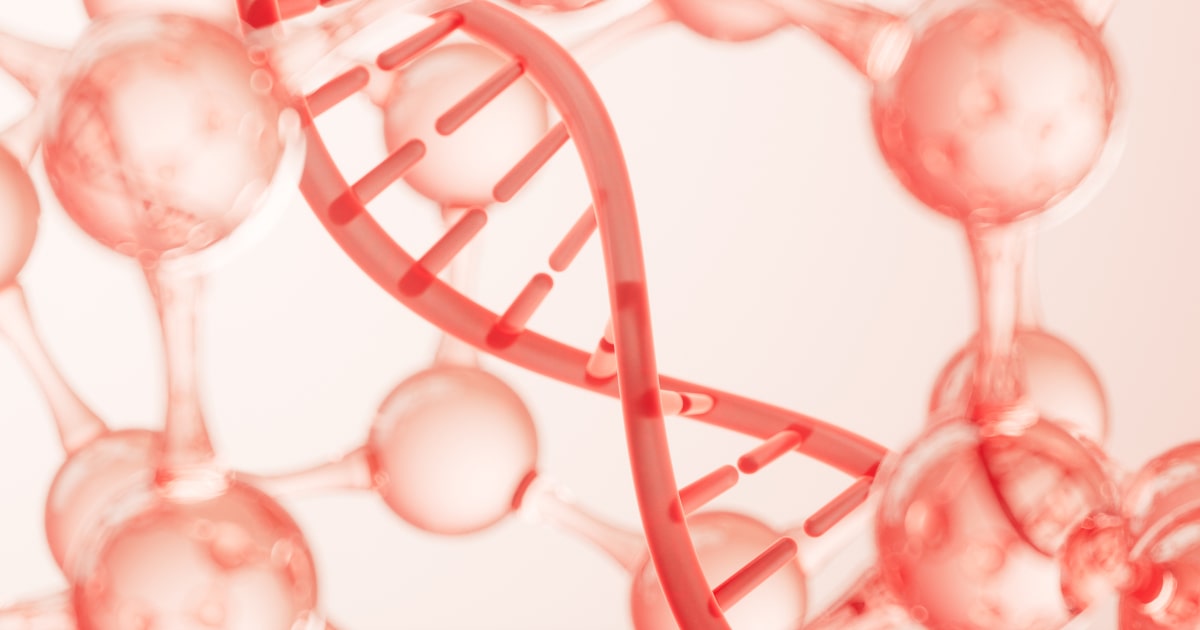
Expert Reviewed By: Dr. Brandon Colby MD
B Lymphoblastic Leukemia/Lymphoma with t(9;22)(q34.1;q11.2); BCR-ABL1 is a rare and aggressive form of leukemia/lymphoma that affects the B cells in the immune system. It is characterized by a chromosomal abnormality involving the fusion of the BCR and ABL1 genes, resulting in a protein that promotes rapid cell growth. This article aims to provide an overview of this complex disease, its diagnosis, and the role of genetic testing in managing the condition.
Understanding B Lymphoblastic Leukemia/Lymphoma
B Lymphoblastic Leukemia/Lymphoma is a cancer of the white blood cells called B lymphocytes. These cells are responsible for producing antibodies that help the body fight infections. In this disease, the B lymphocytes multiply uncontrollably, crowding out healthy cells and leading to various complications, such as anemia, infections, and bleeding disorders.
The Role of t(9;22)(q34.1;q11.2); BCR-ABL1 in the Disease
The specific subtype of B Lymphoblastic Leukemia/Lymphoma discussed in this article is characterized by a chromosomal abnormality known as the Philadelphia chromosome. This abnormality results from the translocation of genetic material between chromosomes 9 and 22, leading to the fusion of the BCR and ABL1 genes. The resulting BCR-ABL1 fusion protein has increased tyrosine kinase activity, which promotes the rapid growth and division of cancerous cells.
Diagnosing B Lymphoblastic Leukemia/Lymphoma with t(9;22)(q34.1;q11.2); BCR-ABL1
Diagnosing this specific subtype of B Lymphoblastic Leukemia/Lymphoma involves a series of tests and procedures to confirm the presence of the Philadelphia chromosome and the BCR-ABL1 fusion gene. These tests may include:
- Blood tests: A complete blood count (CBC) can reveal abnormal levels of white blood cells, red blood cells, and platelets, which may indicate the presence of leukemia.
- Bone marrow biopsy: A sample of bone marrow is removed and examined under a microscope to check for the presence of cancerous cells.
- Cytogenetic analysis: This test examines the chromosomes in the cancerous cells to detect the presence of the Philadelphia chromosome.
- FISH (fluorescence in situ hybridization): This test uses fluorescent probes to detect the BCR-ABL1 fusion gene in the cancerous cells.
- PCR (polymerase chain reaction): This test can detect the presence of the BCR-ABL1 fusion gene at the molecular level, even in cases where the Philadelphia chromosome is not visible through cytogenetic analysis.
Uses of Genetic Testing in B Lymphoblastic Leukemia/Lymphoma with t(9;22)(q34.1;q11.2); BCR-ABL1
Genetic testing plays a crucial role in the diagnosis and management of B Lymphoblastic Leukemia/Lymphoma with t(9;22)(q34.1;q11.2); BCR-ABL1. Some of the primary uses of genetic testing in this context include:
Confirming the Diagnosis
Genetic testing can confirm the presence of the BCR-ABL1 fusion gene, which is a definitive diagnostic marker for this subtype of B Lymphoblastic Leukemia/Lymphoma. It can also help distinguish this disease from other subtypes of leukemia and lymphoma that may have similar symptoms but require different treatment approaches.
Guiding Treatment Decisions
Patients with B Lymphoblastic Leukemia/Lymphoma with t(9;22)(q34.1;q11.2); BCR-ABL1 may benefit from targeted therapies that specifically inhibit the BCR-ABL1 fusion protein. Genetic testing can help identify patients who are likely to respond to these treatments, allowing for more personalized and effective treatment plans.
Monitoring Treatment Response and Disease Progression
Genetic testing can also be used to monitor the levels of the BCR-ABL1 fusion gene in the blood or bone marrow during and after treatment. This can help determine whether a patient is responding to treatment and whether the disease is progressing or in remission.
In conclusion, B Lymphoblastic Leukemia/Lymphoma with t(9;22)(q34.1;q11.2); BCR-ABL1 is a complex and aggressive disease that requires accurate diagnosis and personalized treatment. Genetic testing plays a vital role in this process, helping to confirm the diagnosis, guide treatment decisions, and monitor the patient's response to therapy. By understanding the genetic basis of this disease, researchers and clinicians can continue to develop more effective treatments and improve patient outcomes.
About The Expert Reviewer
Dr. Brandon Colby MD is a US physician specializing in the personalized prevention of disease through the use of genomic technologies. He’s an expert in genetic testing, genetic analysis, and precision medicine. Dr. Colby is also the Founder of and the author of Outsmart Your Genes.
Dr. Colby holds an MD from the Mount Sinai School of Medicine, an MBA from Stanford University’s Graduate School of Business, and a degree in Genetics with Honors from the University of Michigan. He is an Affiliate Specialist of the American College of Medical Genetics and Genomics (ACMG), an Associate of the American College of Preventive Medicine (ACPM), and a member of the National Society of Genetic Counselors (NSGC)